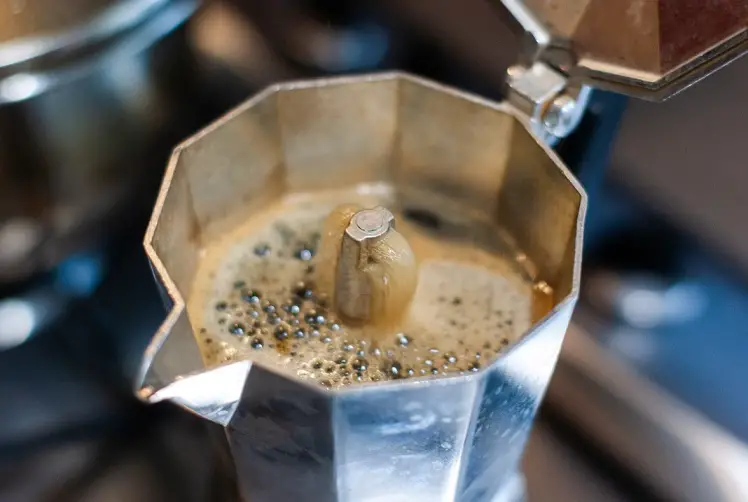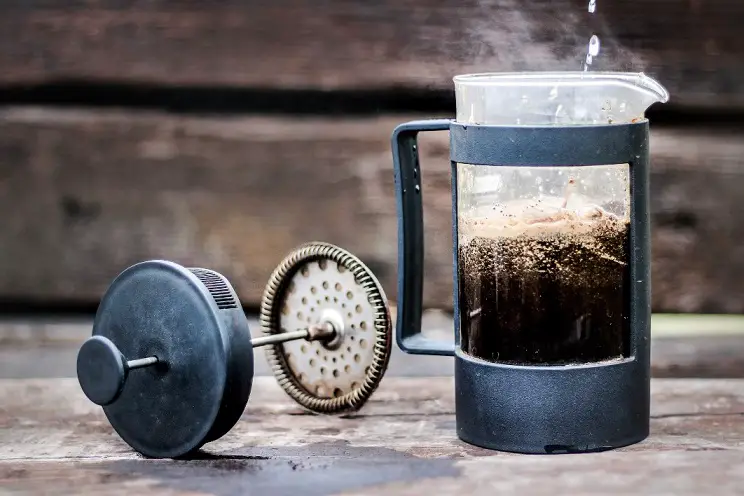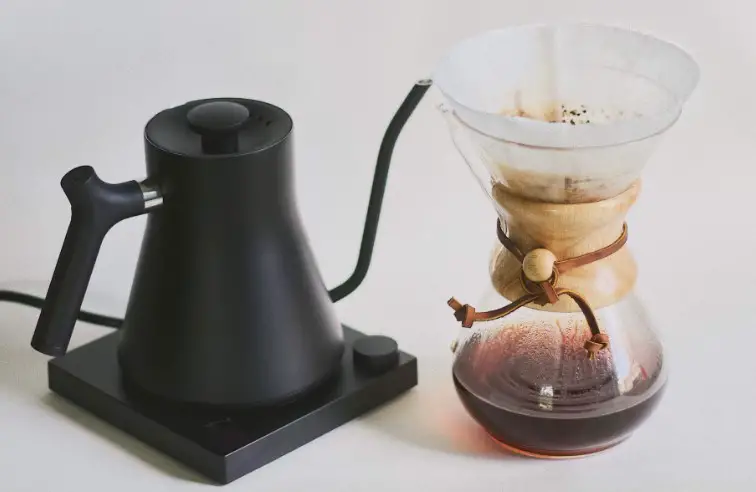Working from home ignited my quest for the perfect coffee brew. This led me to the Moka pot, a blend of aesthetics and efficiency, renowned for its rich coffee. However, mastering its quirks, like the occasional bitter cup, became part of my daily ritual.
The main reason why your moka pot coffee is bitter is because of over-extraction. The grind size and the amount of time that is spent to brew the coffee can determine if the coffee is over extracted or not. Let’s dive into the details.
Causes of Bitterness in Coffee
Over-extraction occurs when coffee grounds release too many compounds into the water. While extraction is essential to achieve coffee’s flavor, overdoing it will result in a bitter, unpleasant taste. This is often due to water spending too much time in contact with the coffee grounds or the water being too hot.
Using too much coffee can overfill the basket, requiring excessive heat and pressure for the brew. This can lead to burning and bitterness. To mitigate this, ensure you fill the basket evenly without heaping. A simple tap around the circumference followed by leveling with a finger can make a difference.
Grind Size, Water Temperature and Brewing Time
- Grind Size: Contrary to some beliefs, a medium-fine grind is recommended for Moka pots. If the grind is too coarse, water will pass through too quickly, not allowing adequate extraction. On the other hand, a very fine grind (like that for espresso) may cause over-extraction due to prolonged contact.
- Water Temperature: Pre-boiling water before placing it in the Moka pot can ensure a consistent brewing temperature. Once on the heat source, the process from placing the pot to the first emergence of coffee should take approximately 90 seconds. Remove the pot from the heat about 5-10 seconds after the coffee starts to emerge. This totals to approximately 100 seconds of heat exposure.
- Brewing Time: Remember, not all the water from the bottom is meant to reach the top chamber. A bit of residual water is expected. Adjust brewing times based on personal taste, but generally, the coffee should be concentrated, resulting in a low yield, high extraction brew.
Common Mistakes Leading to Bitter Moka Pot Coffee
- Too Dark a Roast: While personal preference varies, using an extremely dark roast, like a French roast, inherently brings a higher bitterness level. Opting for a lighter or medium roast might provide a more balanced flavor.
- Basket Overfill: Overfilling the basket can lead to channeling where water finds the path of least resistance through the coffee grounds, leading to uneven extraction. An even distribution of grounds in the basket helps to combat this.
- Using High Heat: A higher heat setting can cause rapid boiling, leading to over-extraction. A medium heat that gently simmers the water is ideal for the Moka pot.
- Inconsistent Dosing: E.g. For a 6-cup Moka pot, around 30g of coffee is ideal. Weighing the coffee ensures consistency from one brew to the next. Adjusting the dose, even slightly, can impact the flavor and strength of the brew.
- Maintenance and Cleaning: Regular cleaning and ensuring the Moka pot components, especially the gasket, are in good condition will make a considerable difference. Over time, residues can build up, influencing the flavor of the brew.
Conclusion
In summary, brewing the perfect cup of Moka pot coffee is an art that requires meticulous attention to various factors.
Over-extraction, which gives the coffee an unpleasant bitterness, can be the consequence of extended water-coffee contact, too hot water, or incorrect grind size.
Maintaining the optimal coffee quantity, ensuring an even grind, and monitoring the water temperature and brewing time are pivotal for achieving that desired taste. While the roast type can be a personal preference, choosing a lighter or medium roast might lessen bitterness.
Other factors like heat settings, consistent dosing, and regular maintenance play crucial roles in the end product. A well-maintained Moka pot and adherence to these guidelines can significantly enhance the coffee drinking experience, reducing unwanted bitterness and highlighting the intricate flavors coffee aficionados seek.




